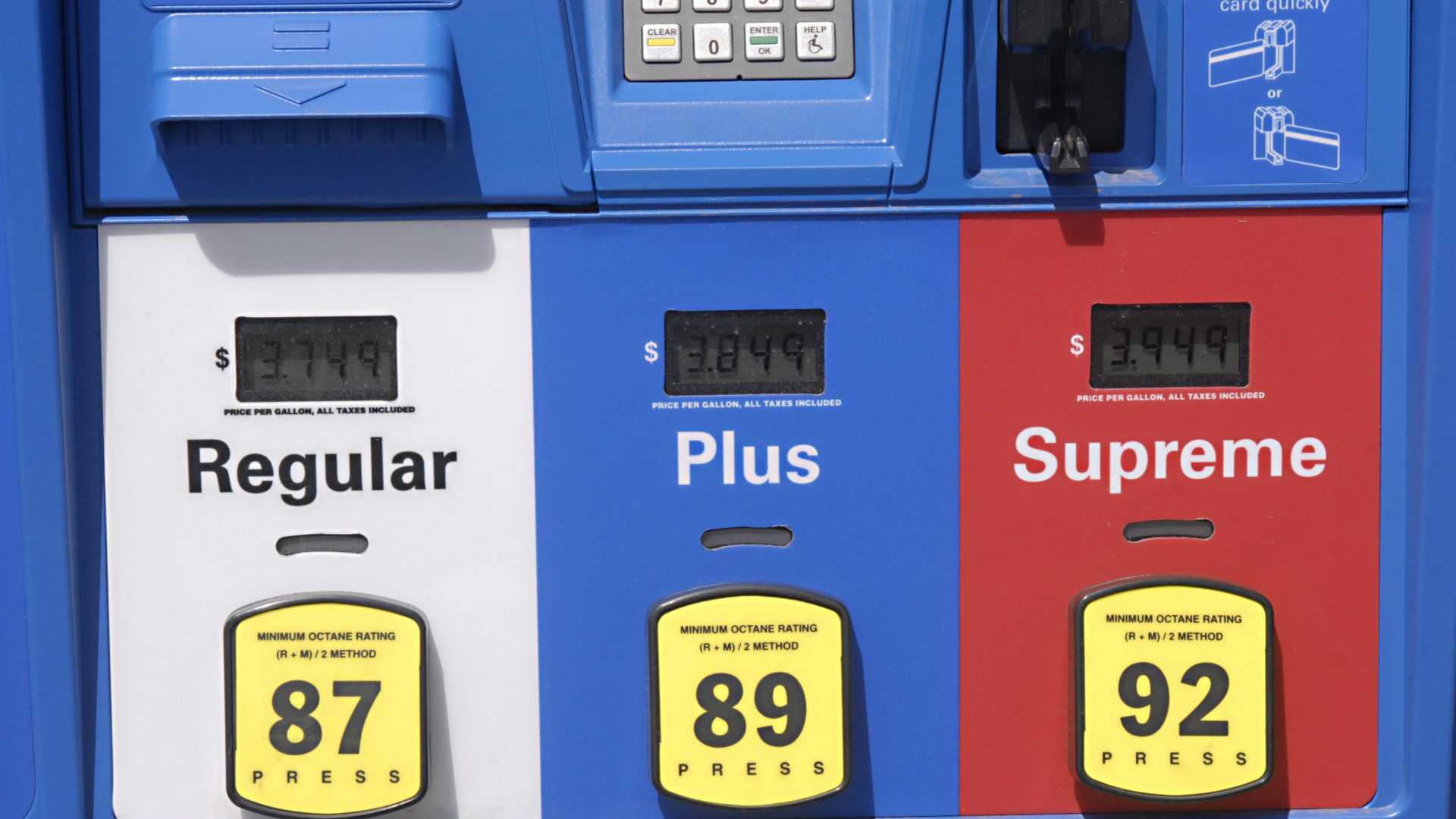

We may earn revenue from the products available on this page and participate in affiliate programs. Learn more ›
Labeling different gases as “regular” and “premium” is a bit misleading, as many cars only require regular gas and should only run on regular gas. Premium gasoline is not necessarily a luxury product in and of itself, though it is used more commonly for luxury vehicles.
Octane is not graded on a 100-point scale. Regular gas is typically 87 octane, mid-grade is about 89, and premium is usually 91. For the average consumer, that’s likely the highest-octane gas you will get at a common gas station, excluding flex fuel, but what does that even mean?
To better understand how this all works, The Drive’s gasoline-swilling editors need to break it down to the basics and explain it from there. Our lesson begins with a simple answer to the question, “what is octane?”
[Note: This article was originally published on Dec. 27, 2020, but was updated with new formatting and new information on 05/12/2021.]

What Is Octane?
Octane is a hydrocarbon derived from processing petroleum. Its chemical formula is C8H18.
What Is an Octane Rating?
An octane rating is a measurement of the fuel’s ability to resist engine pinging. In short, an octane rating is a reading of the fuel’s stability. Regular fuel typically has an 87 octane rating, mid-grade fuel typically falls between 88-90, and premium fuel is typically rated at 91-94 octane. Racing fuel typically has a higher octane rating, such as 98-octane Sunoco Green E15. E85 is rated at 100-plus octane, up to 105 octane or more.
Why Do Some Manufacturers Require or Recommend Use of Higher Octane Gasoline?
Vehicles that recommend or require premium fuel have slowly become more common as of late. This, in part, is due to modern cars with higher compression ratios and turbocharged engines that require higher octane.
What Is 85 Octane, and Is It Safe To Use In My Vehicle?
Gasoline with an 85 octane rating was previously used for carbureted vehicles in high-elevation areas, but you should not use it in your modern vehicles, as it is not designed to do so.

FAQs About Octane
You’ve got questions, The Drive has answers!
A. Check your owner’s manual to determine if you should be using regular or premium fuel.
A. Many modern cars will be able to automatically adjust and adapt to the change, but efficiency and performance might temporarily suffer. In the worst case scenario, you might experience engine pinging, but as long as the low-octane gas is not used repeatedly or for prolonged periods of time, it should be fine. Just go back to the regular stuff next time.
A. It is technically possible, but don’t count on it.
A. The stuff used to boost octane generally costs more money, so those costs are passed on to the consumer.
A. If your vehicle is designed for high-octane fuel and your manufacturer requires you to use it, then yes, it is worth the extra cost. If you’re thinking about putting premium gas into your 1997 Toyota Corolla, then no, it’s not worth it.
A. Yes, adding ethanol will boost gasoline’s octane rating. Ethanol has an octane rating of roughly 110, give or take a few.
Watch: How Octane Ratings Work
In this video, learn about the scientific reasoning behind octane ratings.

Let’s Talk: Comment Below To Talk With The Guides & Gear Editors!
We’re here to be expert guides in everything How To related. Use us, compliment us, yell at us. Comment below, and let’s talk! You can also shout at us on Twitter or Instagram, here are our profiles. Got a question? Got a pro tip? Send us a note: guidesandgear@thedrive.com.